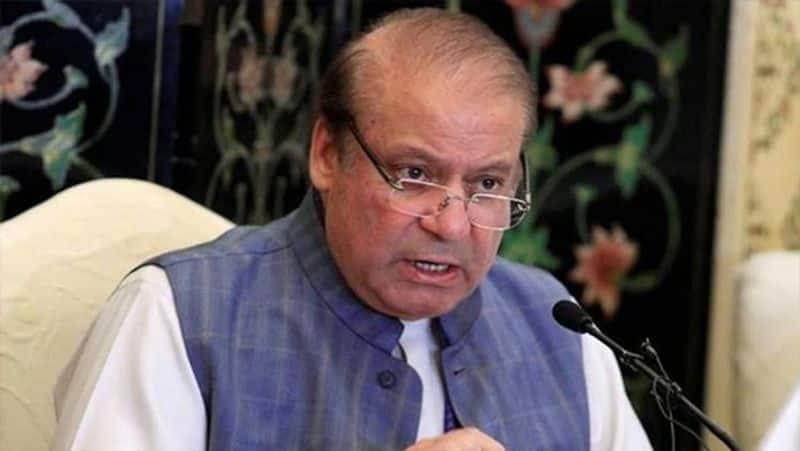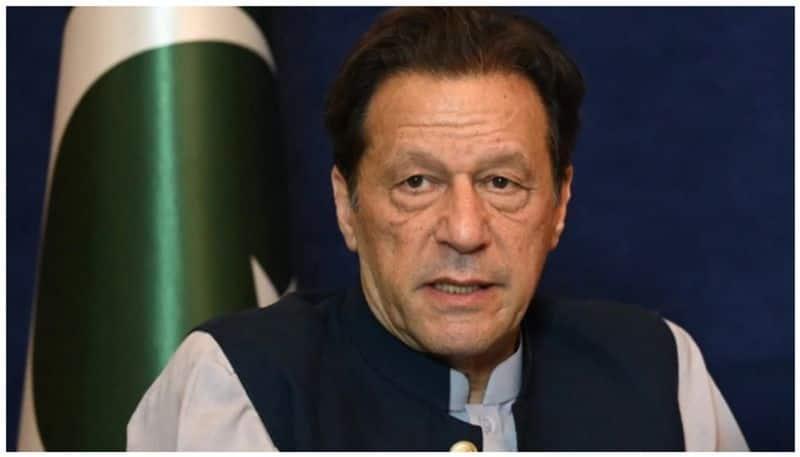
Pakistan Elections 2024: 76 Years Of History And None Of The Pms Have Completed Full 5-Year Term
Independent candidates supported by imprisoned ex-Prime Minister Imran Khan's party clinched victory in 55 out of the 139 National Assembly seats announced by the election commission, amidst unusual delays, triggering accusations of vote rigging.
While numerous parties competed, the primary battle unfolded between Imran Khan's Pakistan Tehreek-e-Insaf (PTI), fielding candidates independently, Nawaz Sharif's Pakistan Muslim League-Nawaz (PML-N), and Bilawal Bhutto Zardari's Pakistan Peoples Party (PPP).
Also read:
Pakistan elections: Both Nawaz Sharif and Imran Khan's parties claim victory, spar over poll data
A party must secure 133 seats out of 265 in the National Assembly to establish a government, with one seat postponed due to a candidate's demise. In total, 169 seats are required for a simple majority out of the 336 seats, accounting for reserved slots for women and minorities.
The Election Commission of Pakistan (ECP) data shows that results of 139 constituencies have been declared, which include 55 independents (mostly supported by PTI), PML-N 43, PPP 35 and other seats going to smaller parties.
With Pakistan poised to welcome a new prime minister, it's worth noting that none of the previous premiers have served a full term in the country's 76-year history.
Let's take a closer look
1. Liaquat Ali Khan
Liaquat Ali Khan, appointed by Muhammad Ali Jinnah in 1947, served as the founding Prime Minister of Pakistan. Taking office on 14 August, his tenure was tragically cut short when he was assassinated by an Afghan during a public meeting of the Muslim City League in Rawalpindi's Company Bagh on 16 October 1951.
2. Khawaja Nazimuddin
Following the assassination of Liaquat Ali Khan, Khawaja Nazimuddin assumed office as Pakistan's Prime Minister on 17 October 1951. However, his tenure lasted only one year and six months. Nazimuddin was dismissed in April 1953 by governor-general Ghulam Muhammad due to his alleged failure to manage the extensive riots and protests in Lahore and East Pakistan (now Bangladesh).
3. Mohammad Ali Bogra
Mohammad Ali Bogra, appointed as Pakistan's PM in April 1953, attempted to limit the powers of the governor-general, leading to the dissolution of the Constituent Assembly later that year. Bogra resigned on 11 August 1955, after a term of two years and three months.
4. Chaudhri Mohammad Ali
Ali took office in August 1955 and is credited with framing Pakistan's Constitution in 1956. However, internal differences within the Muslim League led to his resignation on 12 September 1956, after a term of one year and one month.
5.
Hussain Shaheed Suhrawardy
Hussain Shaheed Suhrawardy of the Awami League assumed office in 1956 after Chaudhry's tenure. However, his prime ministership lasted only 13 months as he was compelled to resign by Pakistan President Iskander Mirza in 1957.
6. Ibrahim Ismail Chundrigar
Chundrigar established a coalition government in October 1957, with support from the Republican Party, the Krishak Sramik Party, and the Nizam-i-Islam Party, as reported by the Indian Express. However, his leadership faced a setback within two months when his attempts to reform the electoral college caused him to lose the confidence of his party and allies. Consequently, Chundrigar resigned on 16 December 1957, according to Reuters.
7. Malik Feroz Khan Noon
The Republican Party's Noon served as Pakistan's Prime Minister for less than 10 months. Initially succeeding Chundrigar at the behest of Mirza, relations between Noon and the president soured as Mirza sought to assert full control over Pakistan. Noon's tenure came to an abrupt end when martial law was imposed in Pakistan on 7 October 1958, leading to his dismissal.
8. Nurul Amin
Following Noon's ousting, Pakistan endured nearly a decade of military rule. Nurul Amin assumed the role of Prime Minister on 6 December 1971, appointed by General Yahya Khan. However, amidst Pakistan's defeat in the war and the subsequent liberation of Bangladesh, Yahya Khan resigned from the presidency, paving the way for Zulfiqar Ali Bhutto's ascension. Amin's tenure as Prime Minister was short-lived, lasting only 13 days, before coming to an abrupt end.
9. Zulfikar Ali Bhutto
Bhutto, the founder of the Pakistan Peoples Party (PPP), assumed the presidency following the enactment of the 1973 Constitution, subsequently becoming Pakistan's Prime Minister after securing a parliamentary majority. However, his tenure was short-lived as allegations of vote rigging led to widespread violence and a coup d'état by General Zia-ul Haq in July 1977. Bhutto was subsequently hanged in April 1979, an event widely regarded as a "judicial murder." His term as Prime Minister spanned 3 years, 10 months, and 21 days, marking a tumultuous period in Pakistan's political history.
10. Muhammad Khan Junejo
Following the non-party elections in 1985, Junejo was invited by General Zia to form the government, marking the end of martial law. However, Junejo's tenure as Prime Minister lasted only three years and two months, characterized by deteriorating relations between him and President Zia.
11. Benazir Bhutto
Benazir Bhutto, daughter of former Prime Minister Zulfikar Ali Bhutto, became Pakistan's youngest and the first woman Prime Minister after winning the elections held in 1988. Her initial tenure lasted one year and eight months until her government was dismissed by President Ghulam Ishaq Khan in August 1990 over allegations of corruption and nepotism. Bhutto returned to power in 1993, only to be dismissed once again by the president in November 1996 due to charges of misgovernance. Overall, her second term as Prime Minister spanned just over three years.
12. Nawaz Sharif
Nawaz Sharif's tumultuous political career saw him assume the role of Pakistan's Prime Minister on multiple occasions. He first became PM in November 1990, but his term was abruptly ended when President Ghulam Ishaq Khan dissolved the National Assembly in April 1993. Despite a Supreme Court ruling in his favor, pressure from the military led to his resignation along with Ghulam Ishaq Khan in July 1993. Sharif returned for a second term in February 1997 but was ousted in a military coup by General Pervez Musharraf in October 1999. His third tenure began in June 2013 following PML-N's electoral victory but ended in 2017 after Pakistan's Supreme Court disqualified him from politics due to corruption charges linked to the Panama Papers scandal. Seeking medical treatment, Sharif went into self-imposed exile in London in 2019 and returned to Pakistan in October 2021.
13. Three PMs between 2002-2007
Jamali assumed office as Pakistan's Prime Minister in November 2002 amid military rule but resigned in June 2004 due to disagreements with the military leadership. Following his resignation, Chaudhary Shujaat Hussain briefly held the position for two months in 2004. He was succeeded by Shaukat Aziz, who served until the end of the parliamentary tenure in November 2007, according to reports from the Indian Express.
14. Yousaf Raza Gilani
After the PPP's victory in the 2008 elections, Gilani assumed office as Prime Minister. However, he was disqualified by the Supreme Court in 2012 on charges of "contempt of court," leading to his resignation. Raja Pervaiz Ashraf then completed the remainder of the PPP government's term, serving until March 2013.
15. Shahid Khaqan Abbasi
Sharif commenced his third non-consecutive term as Prime Minister on June 5, 2013, securing a clear majority with 182 out of 342 seats. However, his tenure was cut short when the Supreme Court of Pakistan disqualified him on July 28, 2017, following the Panama Papers case.
Following the impeachment of Nawaz Sharif, Shahid Khaqan Abbasi was elected as Prime Minister by Parliament. His term concluded on May 31, 2018, coinciding with the dissolution of the National Assembly to pave the way for a caretaker government until the general election held on July 25.
16. Imran Khan
The general elections on July 25, 2018, saw the Pakistan Tehreek-e-Insaf securing 156 out of 342 seats, forming a coalition government with 177 members including PTI, MQM, BAP, and other parties. Imran Khan was elected as Prime Minister of Pakistan on August 18. However, his tenure came to an end on April 10, 2022, following a no-confidence vote that ousted him from office.
17. Shehbaz Sharif
Following the successful no-confidence motion against Imran Khan, Shahbaz Sharif was elected as the Prime Minister of Pakistan. His nomination received support from all joint opposition parties, who voted to remove the previous prime minister from office. The recently ousted government party chose to boycott the elections.
Pakistan is currently governed by a caretaker government headed by Anwarul Haq Kakar. The future will reveal whether the new Prime Minister of Pakistan will be able to serve a full five-year term, potentially making history.
Legal Disclaimer:
MENAFN provides the
information “as is” without warranty of any kind. We do not accept
any responsibility or liability for the accuracy, content, images,
videos, licenses, completeness, legality, or reliability of the information
contained in this article. If you have any complaints or copyright
issues related to this article, kindly contact the provider above.




















Comments
No comment